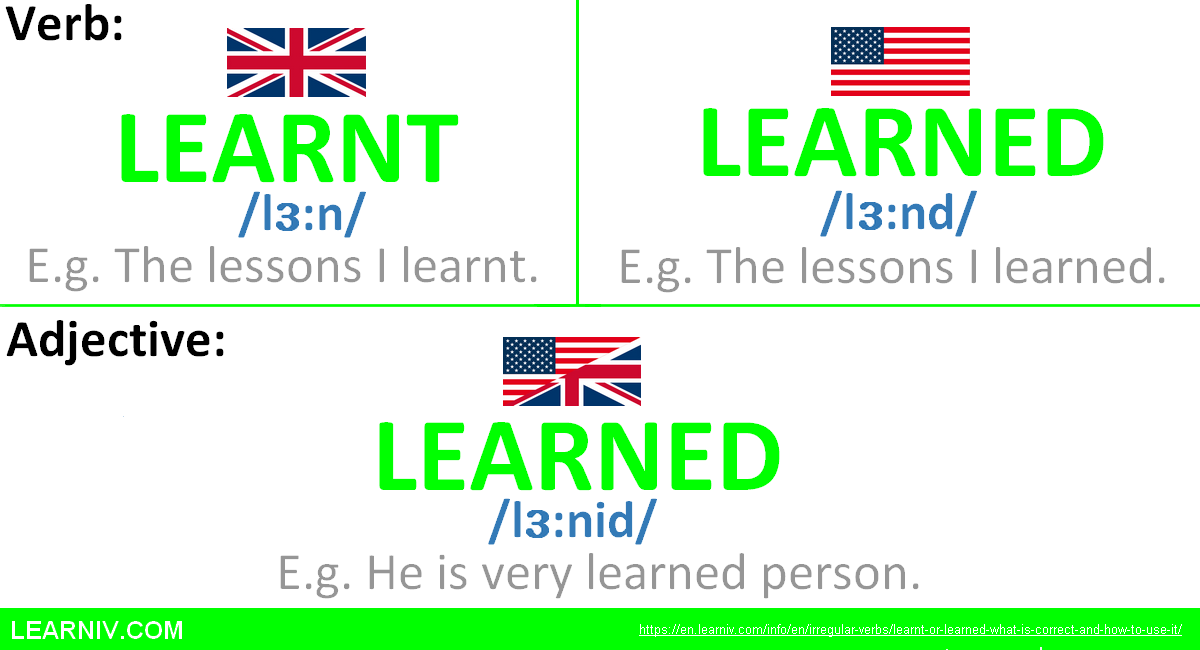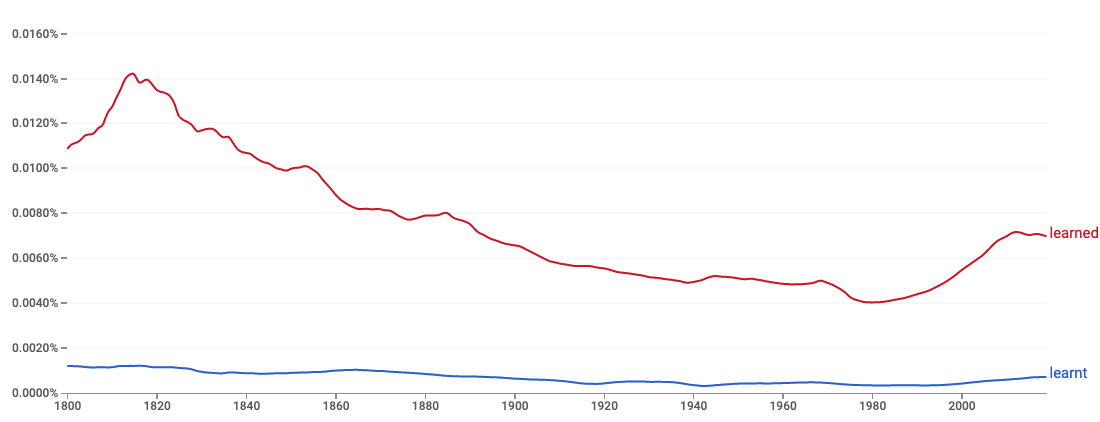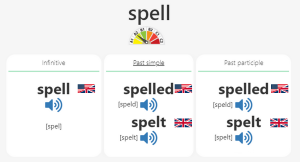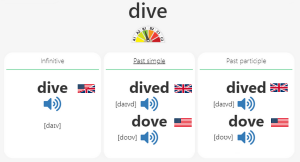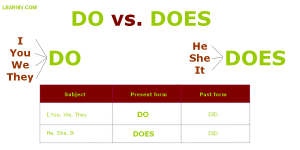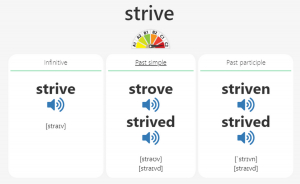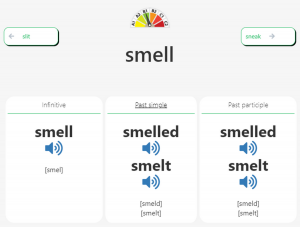In our database, you can find the irregular verb ‘learn’ and we also prepared this simple image and PDF:
This verb has both an irregular and regular form. You can use both and both are correct. Speakers in North America and Canada use learned while the rest of the English-speaking world seems to prefer learnt.
Learned (but not learnt) is also an adjective. When said of a person, it means ‘ having a lot of knowledge because you have studied and read a lot`.
It can also be used of objects, meaning ‘showing, requiring, or characterized by learning’.
Example: She is a ‘very learned’ woman.”
But which is the most used one – learned or learnt? Let´s look at Google Ngram Viewer tool which displays a graph showing how phrases have occurred in a corpus of books over the years.
Learned is more used, but bear in your mind that „learned“ is also an adjective, so comparing with a verb is not representative.
The irregular pattern for Learn is Learnt
We can group irregular verbs by their pattern. It means that more irregular verbs have the same pattern.
In the case of the verb ‘Learn’ we can see the same pattern with these verbs:
| Infinitive | Past simple | Past participle |
| Smell | Smelt / Smelled | Smelt / Smelled |
| Deal | Dealt | Dealt |
| Feel | Felt | Felt |
| Keep | Kept | Kept |
| Leave | Left | Left |
| Sweep | Swept | Swept |
There are many other verbs with the same pattern though.
Learning patterns is a good way how to learn the irregular forms.
Forms of the verb Learn – learnt or learned?
Past participle form of learn
The past participle form of the verb “learn” in English is “learned” or “learnt”. Both forms are correct and commonly used, although “learned” is more common in American English while “learnt” is more common in British English. For example, you could say “I have learned a lot from my mistakes” or “I have learnt a lot from my mistakes”. Learn more about past participle form.
Past simple form of learn
The verb “learn” has two different forms for its past simple form: “learned” and “learnt”. Both forms are acceptable and commonly used, although “learned” is more frequently used in American English while “learnt” is more frequently used in British English. For instance, you could say “I discovered yesterday that she had been hired” or “Yesterday, it came to my attention that she had secured the job.”
Examples of the usage `Learnt` vs `Learned`
Let´s look at the current online media:
- Covid: ‘I learnt how lethal this disease is’ – [BBC]
- Engineering have been building up the design system for over a year now, and we want to share with you the lessons we’ve learnt in that year..– [BBC]
- Covid: The lessons I learned from lockdowns in 2020 – [BBC]
- We learned some very hard and painful lessons in Benghazi – [CNN]
- 10 things we learned in 2020 about living a good life – [CNN]
Meaning of Learn
The Oxford Dictionary says `Learn` means “ to gain knowledge or skill by studying, from experience, from being taught, etc.”
- learn something to learn a language/skill/trade
- He had the opportunity to learn English in Australia.
- learn (something) from somebody/something I learned a lot from my father.
- Everyone in the class had the opportunity to learn from each other.
- learn (something) from doing something You can learn a great deal just from watching other players.
- learn (about something) She’s very keen to learn about Japanese culture.
- The book is about how children learn.
- She received no training but quickly learnt on the job (= while doing the job).
- learn to do something He’s learning to play the trumpet.
- Most people learn to read as children.
- learn how to do something Today we learnt how to use the new software.
- learn what, where, etc… Students need to learn what to do in an emergency.
We can find very similar meaning in the Cambridge dictionary: “ to get knowledge or skill in a new subject or activity:
- They learn Russian at school.
- “Can you drive?” “I’m learning.”
- I’ve learned a lot about computers since I started work here.
- [ + to infinitive ]I’m learning to play the piano.
- [ + question word+ to infinitive ] First you’ll learn (how) to use this machine.
Related verbs
`Learn` also has related verbs:
Same rules are applied for these related verbs.
Synonyms for ‘learn’
- Memorize
- Read
- Pick up
- Grasp
- …atc…
